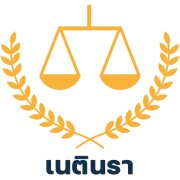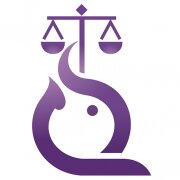Best State, Local, and Municipal Law Lawyers in Thailand
Share your needs with us, get contacted by law firms.
Free. Takes 2 min.
Or refine your search by selecting a city:
List of the best lawyers in Thailand
Legal guides written by Smart Legal Solutions:
- Main Legal Measures to Protect Foreign Investment in Thailand
- The importance of the geographical indications for the Thai economy
About State, Local, and Municipal Law in Thailand
State, local, and municipal law in Thailand govern the administrative functions and legal frameworks at both the national and local levels. These laws are designed to manage relationships and responsibilities between various levels of government and the citizens. They cover a broad range of issues including land use, zoning, public safety, taxation, and the provision of local government services. Thailand operates under a constitutional monarchy with three administrative levels of government-central, provincial, and local-which include municipalities and villages. This structured system allows for greater administration and management of resources across the country.
Why You May Need a Lawyer
Engaging a lawyer for state, local, and municipal law issues in Thailand might be necessary in several situations. Common scenarios include disputes over land use and zoning regulations, challenges related to municipal ordinances or local government decisions, complications with local taxation, or the need for compliance with local administrative procedures. In situations where you're dealing with governmental bodies or interpreting complex local regulations, professional legal advice can help you navigate procedures effectively and ensure your rights and interests are protected.
Local Laws Overview
In Thailand, local laws can vary significantly based on the specific jurisdiction as each locality has its regulations that might address community-specific issues. Key aspects include land use planning where local governments control developments through zoning laws, health and safety regulations enforcing standards in construction and public areas, environmental laws for pollution control, and municipal services such as water supply and waste management. Understanding these local laws is crucial for residents and businesses to operate legally and harmoniously within the community.
Frequently Asked Questions
1. What is the structure of local government in Thailand?
Local government in Thailand consists of municipalities and administrative organizations that manage local affairs under the supervision of the Ministry of Interior. They are categorized into provinces (Changwat), districts (Amphoe), sub-districts (Tambon), and villages (Muban).
2. How are local government officials in Thailand selected?
Local government officials are typically elected positions within the community. For instance, mayors and council members are elected by the local population in municipal areas.
3. What is the role of the provincial governor in Thailand?
The provincial governor acts as the chief executive officer of a province and is appointed by the Ministry of Interior. Governors are responsible for overseeing provincial administration and implementing national policies at the local level.
4. How does zoning affect property in Thailand?
Zoning laws in Thailand determine how land can be used in specific areas, such as residential, commercial, or industrial. It affects property development, building codes, and land usage rights.
5. Can local governments in Thailand impose taxes?
Yes, local governments in Thailand have the authority to impose certain types of taxes, typically related to property and municipal services, to fund local amenities and services.
6. What are the responsibilities of municipal governments?
Municipal governments in Thailand are responsible for providing public services such as waste management, water supply, infrastructure maintenance, public health, and safety services.
7. What are some common legal issues in municipal law?
Common legal issues involve land disputes, zoning violations, disputes over local government decisions, and non-compliance with municipal ordinances.
8. How does environmental law affect local governance?
Local authorities in Thailand enforce environmental regulations aimed at pollution control, waste management, and preservation of natural resources within their jurisdictions, affecting local governance and development projects.
9. What legal protections exist for individuals in land disputes?
Individuals can seek legal recourse through the courts for land disputes, where they are entitled to fair treatment and adjudication following national and local laws governing property rights.
10. Who oversees the enforcement of local laws?
Local government bodies and their respective administrative officers are responsible for the enforcement of local laws, supported by the provincial administration and the Ministry of Interior.
Additional Resources
Several resources and organizations can assist if you require more information or legal advice regarding state, local, and municipal law in Thailand:
- The Ministry of Interior - Overseeing all levels of local governance in Thailand.
- The Department of Local Administration - Provides guidelines and support to local government entities.
- The Lawyers Council of Thailand - Offers referrals to qualified lawyers with expertise in municipal law.
- Thailand Legal Aid - Provides free or low-cost legal services for individuals with limited ability to afford legal assistance.
Next Steps
If you need legal assistance in matters related to state, local, or municipal law in Thailand, consider the following steps:
- Identify Your Legal Needs: Understand the specific issue you need assistance with, whether it’s a dispute, compliance issue, or another matter under local governance.
- Consult Legal Professionals: Reach out to a lawyer specializing in municipal law who can provide advice and representation. Use the resources mentioned to find qualified legal professionals.
- Gather Documentation: Compile all relevant documents, correspondences, or official notices related to your issue to assist your lawyer in evaluating your case.
- Prepare Questions: List any questions or concerns you have for your first meeting with your lawyer to ensure your concerns are addressed effectively.
- Follow Legal Advice: Once you receive advice, follow the recommended steps, and stay in communication with your lawyer through the process to achieve a resolution.
Lawzana helps you find the best lawyers and law firms in Thailand through a curated and pre-screened list of qualified legal professionals. Our platform offers rankings and detailed profiles of attorneys and law firms, allowing you to compare based on practice areas, including State, Local, and Municipal Law, experience, and client feedback.
Each profile includes a description of the firm's areas of practice, client reviews, team members and partners, year of establishment, spoken languages, office locations, contact information, social media presence, and any published articles or resources. Most firms on our platform speak English and are experienced in both local and international legal matters.
Get a quote from top-rated law firms in Thailand — quickly, securely, and without unnecessary hassle.
Disclaimer:
The information provided on this page is for general informational purposes only and does not constitute legal advice. While we strive to ensure the accuracy and relevance of the content, legal information may change over time, and interpretations of the law can vary. You should always consult with a qualified legal professional for advice specific to your situation.
We disclaim all liability for actions taken or not taken based on the content of this page. If you believe any information is incorrect or outdated, please contact us, and we will review and update it where appropriate.
Browse state, local, and municipal law law firms by city in Thailand
Refine your search by selecting a city.

















